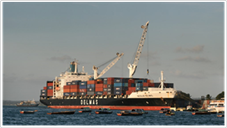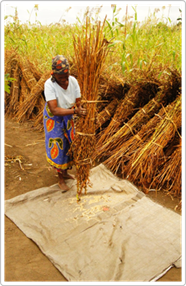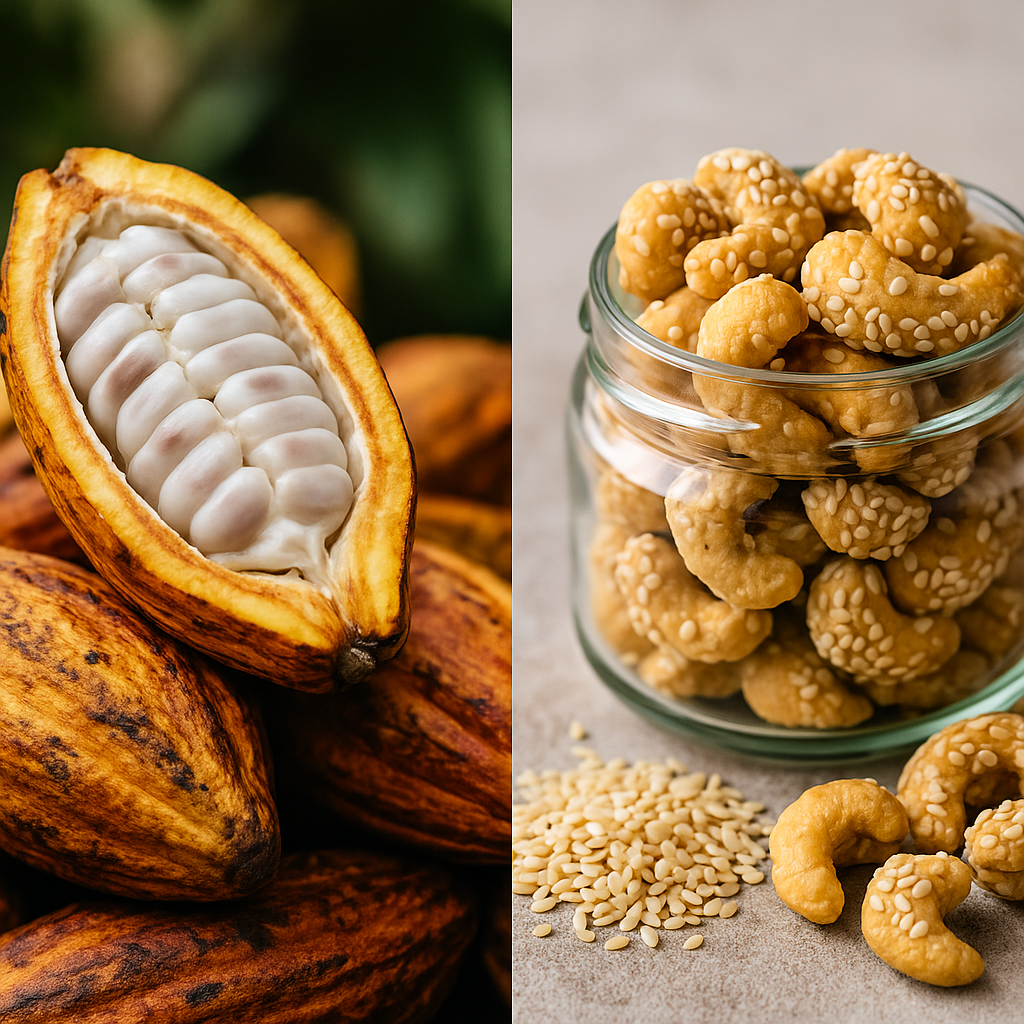What Can Nigeria Export to Germany? Opportunities in Agro-Trading

Germany is Europe’s largest economy and a top global importer of food and agriculture. As the EU’s industrial hub, it sources a third of its food supplies from abroad. German consumers demand both staples and speciality foods at competitive prices, but they also seek high quality (often organic or fairtrade) produce. With a population of 84 million, Germany is by far the most important European market for foreign agribusinesses.
Key German Import Needs
Germany imports cocoa beans on a massive scale – about 445,000 tonnes in 2021. It is Europe’s second-largest cocoa importer (after the Netherlands) and home to a huge chocolate‐processing industry. Roughly three-quarters of Germany’s cocoa comes directly from producing countries like Côte d’Ivoire, Ghana and Nigeria. Other nuts and oilseeds are also big: sesame seeds from Nigeria and India supply a growing bakery and health-food market, where strict safety rules nonetheless reward suppliers who meet EU standards. Tropical commodities are in demand too – cashew nuts and ginger (from developing countries) are used in confectionery and beverages, and exotic fruits like mangoes and pineapples are popular year-round. In short, Germany’s imports include many crops that Nigeria can produce.

Nigeria’s Export Potential
Nigeria already grows many of these commodities. It is Africa’s 3rd‑largest cocoa producer, harvesting roughly 240,000 tonnes per year. Nigerian sesame is world-class – the country is the 3rd-largest global producer, and over 95% of its crop is exported. Cashews flourish in Nigeria (the 6th‑largest producer globally), and yields of ginger, yams, tropical fruits (mango, papaya, pineapple) and even rubber are significant. In recent years, Nigeria’s leading agro-exports have climbed (cocoa, cashews, sesame, ginger and palm products). Many European buyers looking for new suppliers are exactly seeking these West African products.
Germany’s Quality Standards & Expectations
Exporting to Germany means meeting the EU’s strict food safety and quality standards. Nigerian exporters must comply with the EU’s General Food Law (EC No 178/2002), maximum pesticide residue limits, traceability requirements, and relevant organic regulations. In practice, this means adopting Good Agricultural Practices (often verified by GLOBALG.A.P., organic, or Fair-Trade certification) and thorough quality control. Farmers and processors need documented systems (e.g. HACCP) and plant-health certificates for fresh produce. Despite the hurdles, such compliance can pay off: for instance, EU buyers will pay premium prices for certified seeds and organic produce. In short, German importers look for consistent, well-documented quality – meeting those expectations is key to success.
Export-Readiness Tips for Nigerian Agribusinesses
To prepare for Germany, Nigerian firms should:
- Understand regulations: Learn EU import rules and any trade agreements (e.g. the African–EU Economic Partnership). Identify required documents (phytosanitary/health certificates, Certificate of Origin, etc.). Work with export authorities (NAFDAC, CBN, NEPC) to secure certifications (GlobalGAP, organic, halal, etc.).
- Ensure quality and traceability: Implement rigorous quality control on the farm and during processing. Consider third-party audits or certification to signal credibility.
- Plan logistics: Organise reliable shipping and packaging. Because German buyers import year-round, securing a steady supply and good post-harvest handling (cool storage, sorting) is crucial. Know port procedures and select reputable freight forwarders.
- Research the market: Identify German buyers (wholesalers, speciality importers) and tailor offerings to consumer trends (e.g. health foods, organic, ethnic cuisine). For example, demand for ginger spiked during flu seasons, and the bakery sector drives sesame usage.
- Use trade networks: Participate in European trade fairs (like Fruit Logistica or Biofach) or Nigerian trade missions to showcase products. Join business networks or cooperatives to meet potential partners.
- Start small, then scale: It may help to begin with trial shipments or niche products (e.g. organic sesame) to build a reputation before scaling up.
Join the EU–Nigeria Agribusiness Platform
To connect with EU buyers and investors, agribusinesses should register right away. EUNAP is a digital marketplace that “connects Nigerian agribusinesses with European buyers, investors, and facilitators to enhance trade”. Members gain access to verified trade leads, procurement notices and matchmaking tools. As the platform notes, registrants get “exclusive visibility into procurement notices, export leads, and EU-funded investment openings”. They can “connect with verified agribusinesses, buyers, [and] investors” across Nigeria and Europe. In other words, joining EUNAP opens doors to partnerships and information that can turn Nigeria’s agricultural potential into real exports.
Register now and start linking your farm or business to new German markets!
Contributing Sources: Germany’s role and import data; Nigeria’s production and exports; EU import standards and guidelines; https://euroafrilink.com, https://exportfromnigeria.info,




